Information democracy
Powerful companies and governments control the way the internet and new technologies are deployed. These actors blur the lines on corporate power in ways that have tremendous impact on people and democracies. The dominant business model of ‘Big tech’ platforms is based on surveillance, polarization and power imbalances. This ‘surveillance capitalism’ has had a global impact on democracy. For example, state and private actors can use the internet and technologies to spread political disinformation, to manipulate electoral results, to attack human rights defenders and to limit civic space.
Filter resources
-
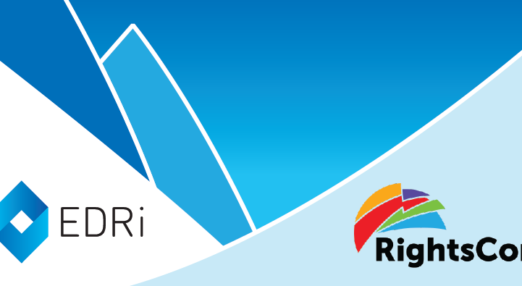
A guide to EDRi at RightsCon 2018
This year, three members of our Brussels office are attending RghtsCon in Toronto: Executive Director Joe McNamee, Senior Policy Adviser Maryant Fernández Pérez and Policy Intern Gemma Shields. The conference days are full of panels, meetings, informal get-togethers and fun activities. Here is our guide to the sessions moderated or attended by EDRi staff. Wednesday […]
Read more
-

Cambridge Analytica/Facebook: Will EU politicians back up their words with deeds?
On 14 May 2018, European Digital Rights (EDRi) wrote to the main political groups in the European Parliament calling for political self-regulation to help fight the problems of disinformation and political micro-targeting.
Read more
-
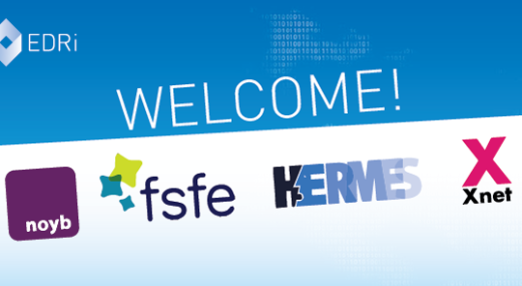
Welcoming new EDRi members: FSFE, Hermes Center, NOYB, and Xnet
We are proud to announce that the EDRi network has grown again, and we would like to warmly welcome the four new members: Free Software Foundation Europe (FSFE), Hermes Center for Transparency and Digital Human Rights, NOYB, and Xnet. European Digital Rights has now 39 members in 19 countries.
Read more
-
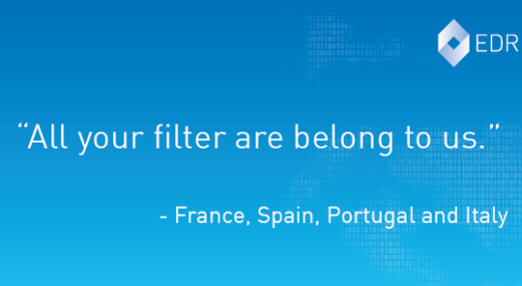
Leak: The “copyright troika” launches another censorship machine attack
On 27 April, a two-hour discussion was held on the Copyright Directive in the Council of the European Union.
Read more
-
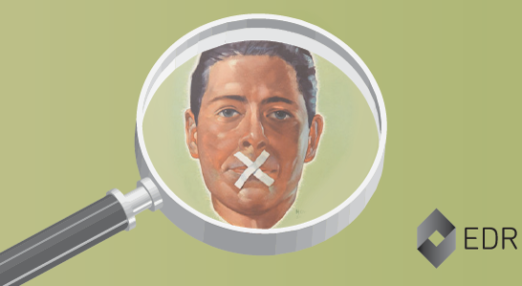
LEAK: British EU Commissioner: ID check & prior approval for online posts
In a letter to Commissioner Mariya Gabriel obtained by EDRi1, the British European Commissioner, Sir Julian King, makes it clear that, not alone does he no longer find it acceptable that people should be able to communicate online without prior approval, he also objects to people communicating without being identified. Commissioner King is pushing the […]
Read more
-

Press Release: “Fake news” strategy needs to be based on real evidence, not assumption
Today, 26 April 2018, the European Commission adopted a Communication on “tackling online disinformation”. European Digital Rights (EDRi), The Civil Liberties Union for Europe (Liberties) and Access Now will jointly respond by issuing a joint shadow report in the coming weeks.
Read more
-
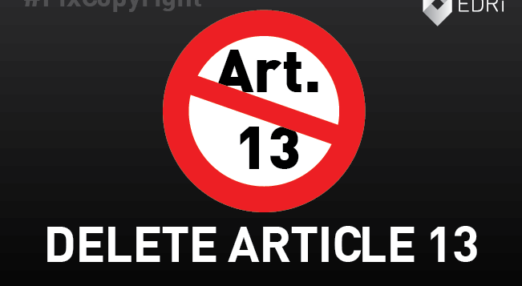
Let’s stop the Censorship Machine!
We have to make sure our representatives in the European Parliament oppose Article 13 during their vote in the JURI Committee on the proposed Copyright Reform. The dangers have been pointed out repeatedly. Still, they have remained ignored. We therefore decided to send the message in different languages, hoping Parliamentaries will better relate this time. […]
Read more
-

EU Council Presidency rushes to impose new copyfails in the EU
The discussions on the Censorship Machine proposal (a.k.a. upload filters) in the EU has suddenly speeded up.
Read more
-
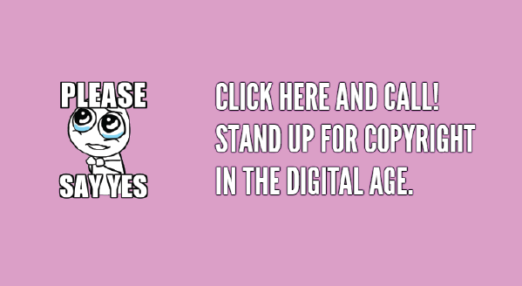
Stop the #CensorshipMachine!
In September 2016 the European Commission proposed a controversial Copyright Directive that, if accepted, will threaten our freedoms online. The European Parliament Committee on Legal Affairs (JURI) is set to vote on the issue in June, and your action is needed to stop the “censorship machine”! What can you do? See the list of JURI Committee […]
Read more
-
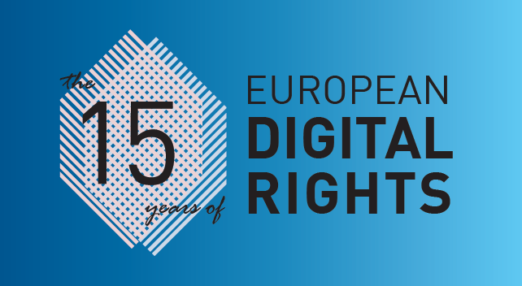
15 years of digital rights achievements
In 2018, EDRi turned 15! The entire network is proud to celebrate this anniversary and its digital rights victories.
Read more
-

Wikimedia: A licence for success
In this blogpost published on the occasion of the 15th anniversary of EDRi we present our member Wikimedia Germany.
Read more
-

AptiRo, EFN & Alternatif Bilisim: Digital rights around Europe
In this blogpost published on the occasion of the 15th anniversary of EDRi we present our members AptiRO (Romania), EFN (Norway) and Alternatif Bilism (Turkey)
Read more
